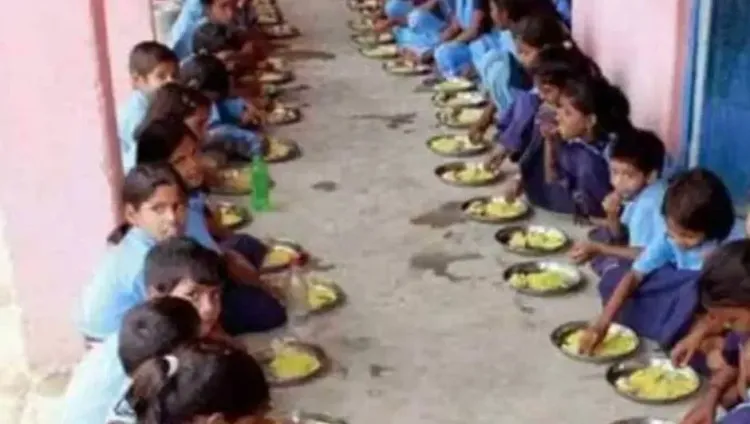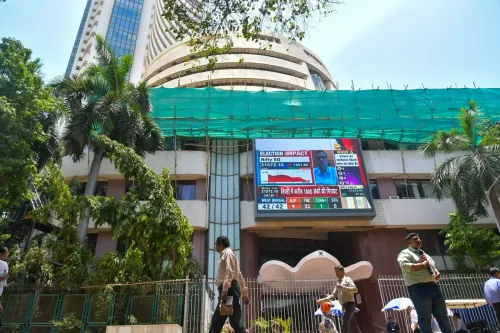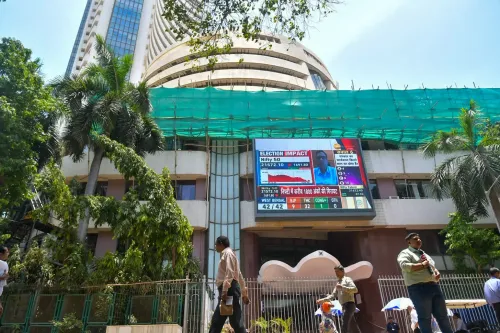Experts Highlight the Role of POSHAN Abhiyaan and FSSAI's Eat Right School in Promoting Healthy Eating Among Children

Synopsis
Key Takeaways
- POSHAN Abhiyaan and FSSAI's Eat Right School initiatives educate children on nutrition.
- Parents and schools must collaborate to promote healthy eating.
- Nutrition should be integrated into school curricula.
- Engagement in food education can reduce health issues.
- Community involvement enriches food literacy.
New Delhi, Feb 10 (NationPress) In light of rising worries about poor dietary habits and the escalating incidence of ailments such as diabetes and hypertension in India, public health specialists highlighted on Monday that the government's POSHAN Abhiyaan and FSSAI's Eat Right School initiative are playing a crucial role in teaching children the significance of balanced diets and sustainable eating practices.
The surge in the consumption of ultra-processed foods (UPF) — which are high in sugar, salt, and unhealthy fats while being lacking in nutrients — is a significant health challenge in India.
As pointed out in the recently published Economic Survey 2024-25, this trend is contributing to various chronic health issues and even mental health disorders across the nation.
Experts emphasized that parents, educational institutions, and the broader community must take a more active role in nourishing children’s understanding of healthy eating. This collaborative approach is expected to not only cultivate a healthier generation but also lessen economic pressures and boost productivity.
“India’s POSHAN Abhiyaan provides a systematic framework for schools, parents, and communities to assist children in cultivating healthy habits,” stated Dr. Anuja Agarwala, a former nutritionist at AIIMS, New Delhi, and currently serving as the Vice President of the Indian Diabetic Association.
“Initiatives like FSSAI's Eat Right School educate students on the importance of balanced nutrition and sustainable eating through engaging sessions and activities. The programme promotes cooperation between parents and schools to foster healthy eating habits via interactive workshops and resources,” she explained.
Launched in March 2018, POSHAN Abhiyan (Prime Minister's Overarching Scheme For Holistic Nourishment) is the government’s primary initiative aimed at enhancing nutritional outcomes for children under six years, adolescent girls, pregnant women, and lactating mothers in a comprehensive manner.
The Eat Right School program was initiated by FSSAI to increase awareness regarding food safety, nutrition, and hygiene among school-aged children, thereby benefiting the broader community.
Agarwala emphasized that collaboration between parents and schools is vital for the sustainability of nutrition education. This could involve engaging parents in food literacy through nutrition awareness workshops and cooking demos.
“These initiatives motivate parents to actively interact with teachers and school nutritionists about their child’s dietary preferences and habits. By working together, schools and parents in India can ensure that children receive nutritious meals at school while also developing healthy eating practices at home, creating a unified approach to nutrition education that supports children's growth and well-being,” she remarked.
As primary role models, parents can also promote healthy habits by emphasizing hygiene, teaching children to wash their hands before meals, minimizing food waste, and ensuring cleanliness.
“When parents, schools, and the community join forces, children not only grasp the significance of healthy eating but also adopt hygienic practices, cultivate values of inclusivity, and recognize the importance of nutritious meals,” Agarwala concluded.
Dr. Jamuna Prakash, a food consultant and former Professor at the Department of Food Science and Nutrition, University of Mysore, underscored the necessity of embedding nutrition in the school syllabus.
“Nutrition ought to be a core component of the school curriculum as it equips children with vital knowledge for making informed food choices. It also fosters lifelong health and prevents challenges such as malnutrition, obesity, and deficiencies in micronutrients,” Prakash told IANS.
She referenced Japan’s Shokuiku (food education) programme, which instructs students on balanced diets, food origins, and healthy eating habits.
This initiative includes local farmers, food producers, and community organizations to help children understand the source of their food, and the students actively participate in meal preparation, cleanup, and food nutrition education.
“Implementing similar practices in schools can enlighten students on the importance of balanced nutrition, the dangers of processed foods, and how to tackle deficiencies,” Prakash added.
Furthermore, Prakash suggested activities such as school gardens or cooking classes to make the lessons more engaging and relatable, thereby establishing a solid foundation that empowers children to adopt healthy lifestyles and positively influence their families and communities in the future.
Agarwala also stressed the importance of prioritizing early childhood nutrition by involving nutritionists in maternal care, breastfeeding, and early feeding practices to create a robust nutritional base prior to schooling — a key objective of POSHAN Abhiyaan.








